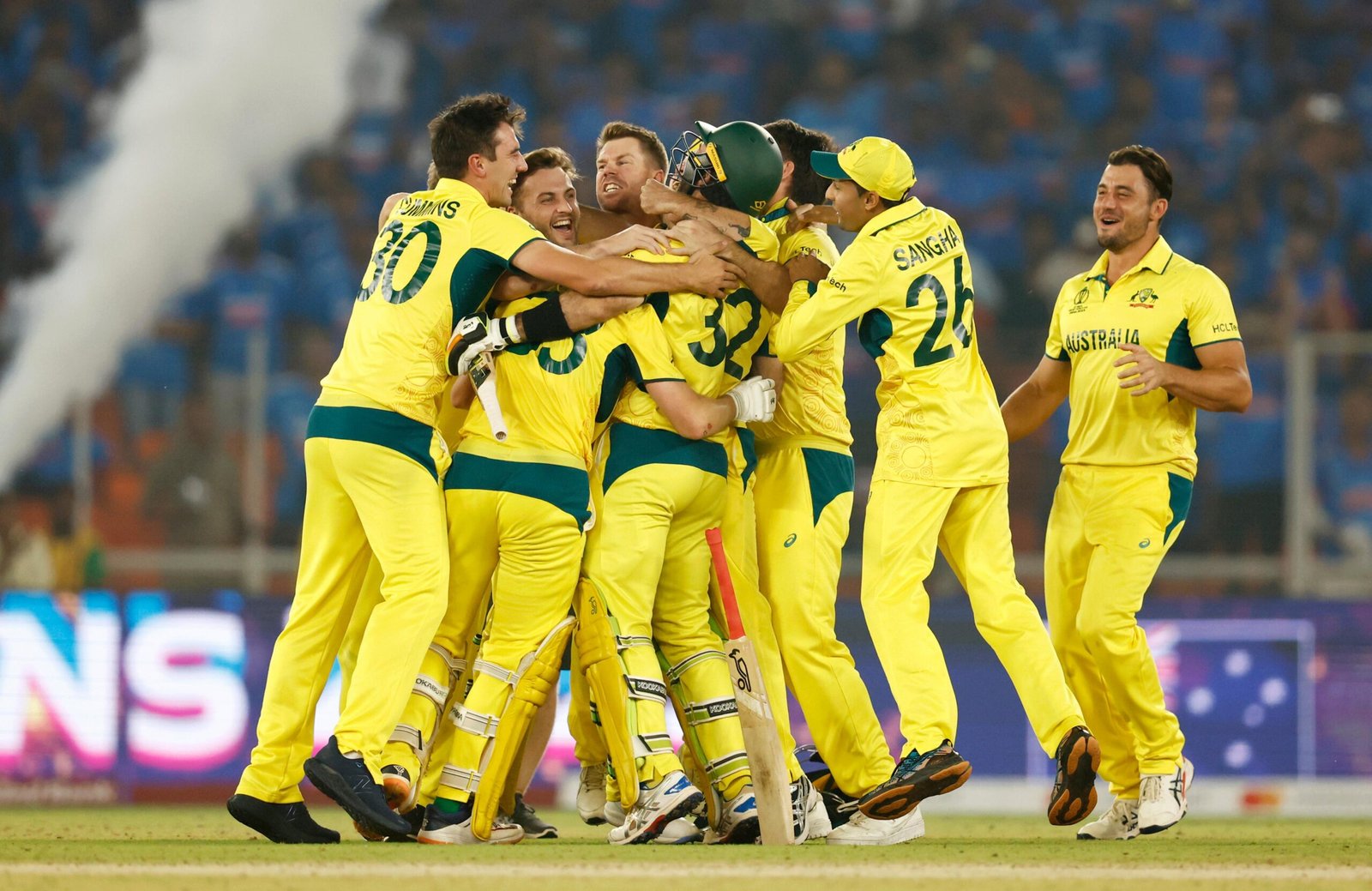
World Cup 2023 final: Australia win 6th ODI World Cup trophy
Australia have once again etched its name into the annals of cricket history by clinching their sixth ODI World Cup trophy in a thrilling showdown against India. The epic final unfolded at the iconic Narendra Modi Stadium in Ahmedabad, where the Aussies, after winning the toss, opted to field. The game was a rollercoaster of emotions as India managed to post a respectable total of 240 runs before being all out on the last ball.
In the batting department, KL Rahul showcased his prowess with a resilient innings, scoring 66 off 107 deliveries. Former captain Virat Kohli contributed a solid 54 off 63, and Rohit Sharma added 47 off 31 to India’s total. However, the Australian bowling attack, led by Mitchell Starc with figures of 3/55, coupled with two wickets each from Pat Cummins and Josh Hazlewood, ensured that India’s innings did not reach an imposing total.
Australia, in their pursuit of the target, faced some tense moments, but Travis Head emerged as the hero with a magnificent 137 runs. Marnus Labuschagne played a crucial supporting role, contributing a steady 58 off 110 balls. Despite the challenge posed by the Indian bowlers, the Aussies managed to reach the target in 43 overs, securing a historic victory by six wickets. One of the standout moments was when Mohammad Siraj delivered a ball to Glenn Maxwell, who cleverly guided it for two runs, ultimately sealing the win. Even though Kuldeep Yadav made a valiant effort with a rightward dash and a diving stop, the batters completed the winning two runs.
The jubilant celebrations that ensued marked Australia’s fifth ODI World Cup triumph, with previous victories in 1987, 1999, 2003, 2007, and 2015. The team’s stellar performance in the final showcased their resilience and determination to add another prestigious trophy to their illustrious cricketing history.
On the flip side, India’s quest for a third World Cup trophy remained unfulfilled. Despite an impressive unbeaten run throughout the group stage, winning all nine games, they faltered in the crucial final showdown. The defeat extended India’s ICC trophy drought, which has persisted since 2013, leaving the cricket-crazy nation yearning for another taste of international glory.
The journey to the final was no cakewalk for either team. India’s dominance in the group stage culminated in a semifinal victory against New Zealand, making them the first side to secure a spot in the final. Meanwhile, Australia faced a formidable South African side in the second semifinal, triumphing to set the stage for the title clash.
The final had an added layer of drama as Australia sought revenge for their group stage loss to India. Pat Cummins, one of the key architects of Australia’s success, had boldly expressed his intent to silence the massive crowd of 1.3 lakh spectators. True to his words, Cummins played a pivotal role in stifling the Indian batting lineup and achieving the desired result. The victory not only secured Australia’s supremacy in the cricketing world but also provided a fitting end to a tournament filled with twists, turns, and moments of sheer brilliance.
Also, see:
Fans draw comparisons between World Cup 2023 and World Cup 2003







